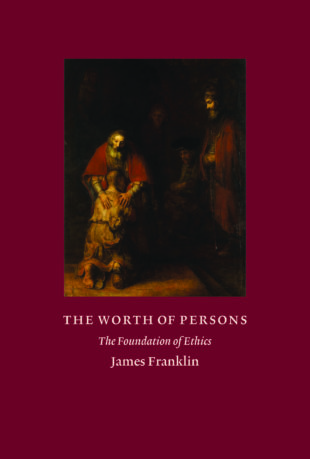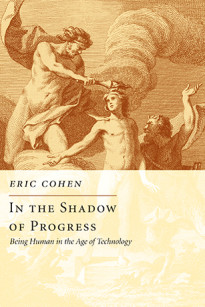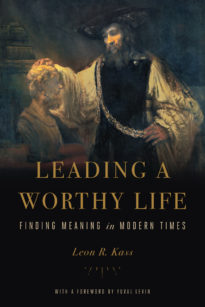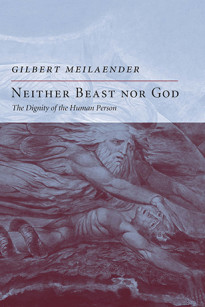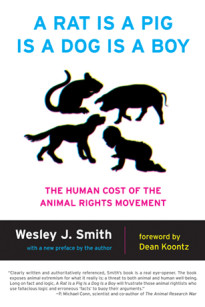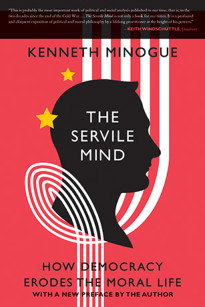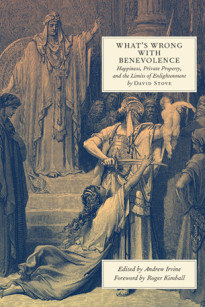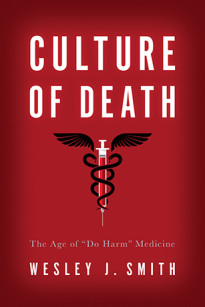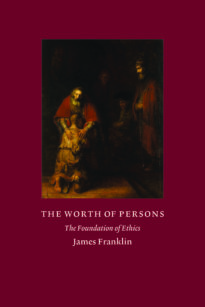“What a piece of work is man,” says Hamlet. “How noble in reason, how infinite in faculty, In form and moving how express and admirable, In action how like an Angel, In apprehension how like a god . . .” Hamlet is right that possession of such properties as reason, apprehension, and the capacity to act confer on humans a moral weight, a nobility, dignity, or worth that makes it important what happens to humans and what they do.
What happens to humans can be a tragedy. What happens to rocks cannot. When we see pictures of atrocities, we understand that the victims were people like us, people who until their end possessed reason, apprehensions, personal unity, hopes, loves, and individuality as we do. That is what makes their death a tragedy and not, like the explosion of a lifeless galaxy, a firework. Gross metaphysical differences like that between humans and rocks imply gross moral differences.
If we turn to philosophical works on the foundations of ethics, the array of concepts is very different from talk of nobility, perfections, dignity, and tragedy. Those are found in classic literary texts, but in ethical works, discussion is all about right and wrong actions, consequences and rules, rights and duties, virtues and dilemmas. Those are all respectable ethical topics, but they are only central to ethics on a view of it as fundamentally about what to do (how to live, what actions are right and wrong). That is a very partial view of ethics. It skates over the surface, by disconnecting what humans ought to do from what sort of entities they are. Its superficiality often leads to painting ethics in pastel shades, as if it were a polite and reasoned discourse about subtle questions, infused with little sense of urgency.
The present work is philosophy, not literature. But it aims to reconnect ethical theory with the nature of the entities, mainly humans, to which ethics applies. It argues that the central foundational notion in ethics is the worth or dignity of persons. Chapter 1 explains how the “what to do” aspect of ethics depends on the worth of persons – for example, that the fundamental reason why murder is wrong is that it is the (deliberate) destruction of something of great worth (rather than its violating a rule, instantiating a vice, or subtracting from the greatest good of the greatest number). Rights, duties, virtues, harms, consequences are shown in Chapter 2 to be meaningful only because of the worth of the humans involved. The equality of persons, which is widely agreed to be crucial for the justice of social arrangements, itself needs a robust notion of worth so as to explain what it is about persons that is equal.
Chapter 3 contrasts the worth-of-persons approach to ethical foundations with other classical theories of ethics, such as evolutionary, divine command, Humean and Aristotelian views. That allows the nature and distinctiveness of the present approach to become clear.
It is then argued that human worth is a metaphysically strong notion, but one that is not freestanding. Worth supervenes on a number of properties which are not themselves explicitly ethical but which distinguish humans from other entities in the world – rationality, consciousness, the rational will, the unity and diversity of the self, emotional structure and love, individuality.
This, the central argument of the book, is distributed over several chapters. Chapter 4 argues, against the metaphysics-phobia of Rawls and others, that it is correct to search for properties of persons that will ground worth, and that the primary bearers of worth are substances (persons), rather than properties or activities of them such as knowledge, happiness, or life courses. Chapter 5 develops the notion of supervenience (or grounding), the relation between non-moral properties of humans such as rationality and the moral property of worth that arises from them. Supervenience is the usual notion found in metaphysics, an asymmetric, necessary relation by which some properties stand as a basis that necessarily gives rise to others – an example outside ethics is the way in which the evidence in a legal case grounds the rationality of a judgment that guilt has been proved beyond reasonable doubt. It is explained how supervenience deals with Hume’s is-ought gap and Mackie’s argument that moral properties are too “queer” to fit into a scientific world picture. Chapter 6 identifies what properties of humans do ground worth – not only rationality and consciousness but the ability to decide on the basis of reasons, the unified and diversified self, the emotional structure of persons and love, and individuality.
Chapter 7 considers the worth of the non-human parts of reality: both of animals that share a trace of properties such as rationality, and the non-animal environment, which has a quite different, “aesthetic,” kind of intrinsic value. Chapter 8 then gives some explanation of how obligation arises from worth. But rules of conduct and guidance for action are not the aim of the project. The point of foundations is not to determine what to do; this is a book about the foundations of ethics, not about casuistry. It does not aim to produce exceptionless principles to resolve moral dilemmas, but to explain why they are dilemmas in the first place – why the two sides of dilemmas both have moral force. Foundational work should explain why killing in self-defense poses a moral dilemma – either choice leads to the death of a human – but should not resolve the question.
Finally, epistemology is addressed in Chapter 9. Knowing the bases of worth like rationality and consciousness is possible because we are rational and conscious. We also have some access to other people’s consciousness and emotional structure by empathy and love. Knowing the supervenience of worth on those bases is possible because supervenience is such an intimate relation – although it can happen that some cause such as early deprivation results in an error like self-hate.
The Epilogue lays out briefly the problem of the compatibility or otherwise of the present realist theory of ethical foundations with various views of the cosmos, such as materialist atheism, pantheism, and personal theism. A metaphysics-heavy account of ethics is not fully complete without some explanation of how it fits into cosmology (since, for example, a strictly materialist view of the universe might be thought to undermine any robust notion of worth). But that is a project that will have to be pursued separately.
The ethical foundational theory developed here is loosely Kantian. But that means the realist Kant who defends human dignity and absolute inner worth, not the Kant who attempts to develop maxims on the basis of universalizability and to lay down exceptionless rules of conduct. The theory also has some Thomist elements, especially in taking seriously the Aristotelian notion of a perfection or excellence. The fact that worth supervenes on (inter alia) rationality means that the development of rationality is a perfection of humans, which explains why everyone has a right to education. While not utilitarian or consequentialist, the theory does take consequences seriously, since consequences are effects on beings of worth, so what happens to such beings matters absolutely.
The leading ideas of the theory of ethics developed here are:
◆ Ethics in the sense of what to do follows from something much more basic, the worth of persons.
◆ The foundations of ethics should not be approached with a phobia about metaphysics; beings that matter ethically, like humans, are inherently different from ones that don’t, like stones.
◆ Worth belongs primarily to substances (full-blown entities), like humans, not to properties or activities of them like knowledge or life histories.
◆ The point of foundations is not to produce principles to decide difficult questions of what to do, but to explain why difficulties arise.
◆ Essential to ethics is the Aristotelian notion of a perfection or excellence.
◆ Humans are in contact with and subject to an ethical realm in the same way they are in contact with and subject to a realm of logic and evidence.
◆ The worth of persons is doubtfully compatible with a purely materialist view of the universe, but what alternative cosmology is sufficient is not easy to say.
Each of these is a minority position in ethical theory. The combination is unique.
